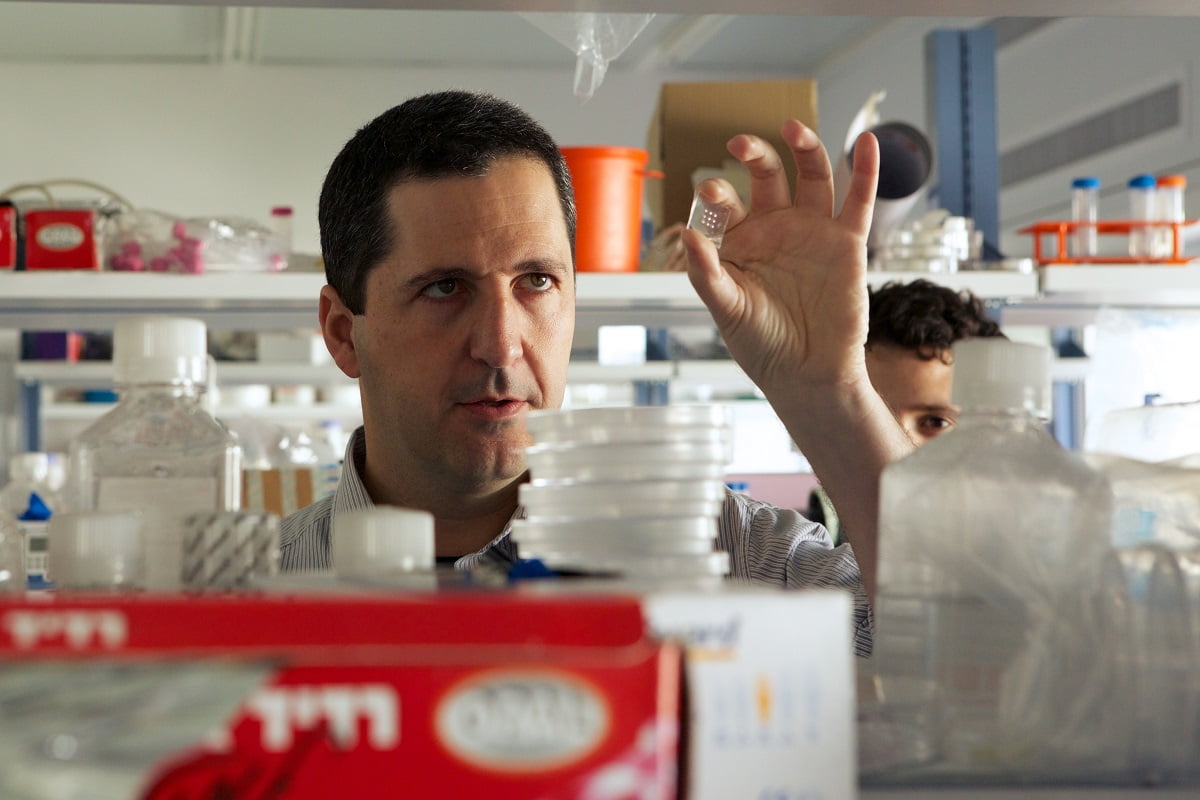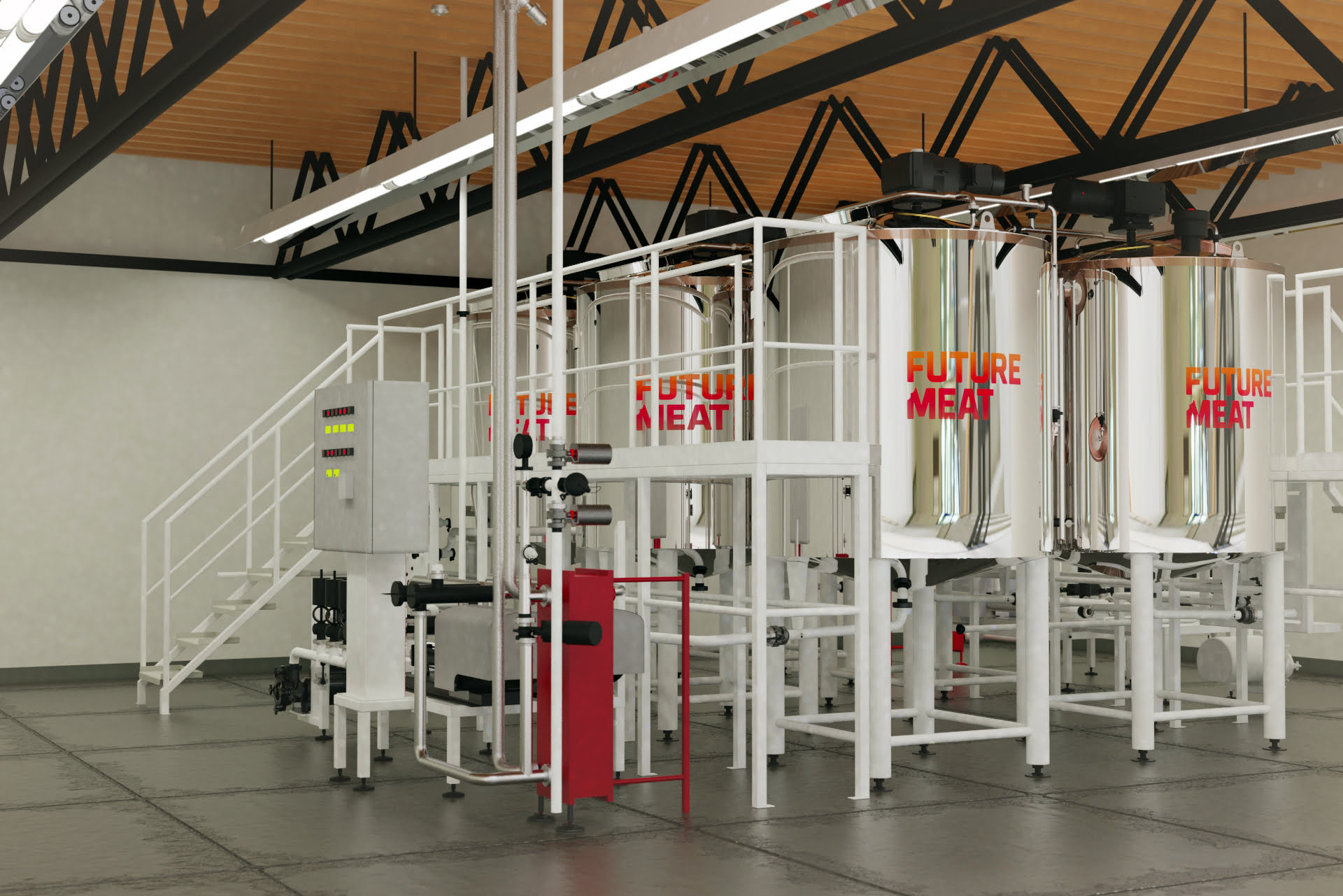Global demand for meat may be on the rise, but more and more consumers are looking for protein alternatives that are touted as healthier and more eco-friendly. Israeli companies, meanwhile, are continuing to pioneer innovative methods to produce clean meat, serving up a plethora of vegan substitutes in specific niche restaurants and on the street.
Israeli developer Future Meat Technologies has found a way to mass-produce its own lab-grown meat in a way that makes cultured meat “affordable for everyone,” said the company’s founder and chief scientific officer, Yaakov Nahmias. The Rehovot-based firm recently announced that it had opened the world’s first industrial cultured meat facility in the central Israeli city just 20 km south of Tel Aviv.

Calling the new production facility a real “game-changer,” Nahmias said it “allows us to move out of the lab to grow hundreds of kilograms of meat in stainless steel vessels. As a result, production is cleaner and more efficient. Most importantly, it allows us to speed up regulatory approval to aim for market [entry] by 2022,” he told NoCamels.
More specifically, Future Meat aims to expand to the United States by next year to sell through food services. While the company didn’t disclose details, it confirmed to NoCamels that it is eyeing several locations in the United States and is also in the process of approving its production facility with regulatory agencies in multiple areas.
“We are actively seeking to engage customers and build a global brand for cultured meat,” said Nahmias.
“This facility opening marks a huge step in Future Meat Technologies’ path to market, serving as a critical enabler to bring our products to shelves by 2022,” added CEO Rom Kshuk in a company statement.
Cultured meat production plant
The company first announced that it was opening its production plant near Tel Aviv in October 2019, and at the same time, raised USD 14 million in a Series A funding round.
The new facility makes scalable cell-based meat production a reality, with the capability to produce up to 500 kg of cultured products a day, which is equivalent to 5,000 hamburgers, or one cow, once it is fully operational, the company said.

The Rehovot-based facility provides animal cells with special feed, including amino acids and vitamins, allowing them to rapidly grow and fill stainless steel vessels. Animal cells are then harvested and produce cultured meat products.
With the goal of making cultured meat cost-effective, the company also wants to ensure it “produces delicious food that is both healthy and sustainable to secure the future of coming generations,” said Nahmias in the statement.
The facility supports Future Meat’s larger efforts to create a more sustainable future. The company said its cruelty-free production process is expected to generate 80% fewer greenhouse emissions and use 99% less land and 96% less freshwater than traditional meat production.
“It is doing so with a footprint that is 20x smaller than traditional agriculture and with a fraction of the environmental resources,” explained Nahmias.
The company said its production facility can produce cultured chicken, pork, and lamb without the use of animal serum or genetic modification (non-GMO) and with the production of beef coming soon.
GMO-free meat from animal cells
Future Meat Technologies was founded in 2018 to focus on cost-efficient, GMO-free production of meat directly from animal cells, without the need to raise or harvest animals.
The technology is based on Nahmias’ work at the Hebrew University of Jerusalem and is licensed through its technology transfer company, Yissum. As chief scientific officer, Nahmias previously noted that Future Meat is the only company that can produce animal fat without harvesting animals and without genetic modification.

Future Meat’s process uses the rapid growth of connective tissue cells called fibroblasts to reach high densities before turning the cells into cultured muscle and healthy fats. The company said it aims to introduce hybrid products—combining plant proteins for texture and cultured fats that create the distinct aroma and flavor of meat.
“We are using different cells from other players in the industry, making us uniquely non-GMO. We have critical innovations in chemistry identifying proteins in plants that eliminate the use of animal serum proteins,” Nahmias explained. “Finally, we have innovations in engineering that allow us to actively remove waste products from our bioreactors recycling nutrient medium and reducing overall production costs.”

Several Fortune 500 companies have invested in Future Meat Technologies, including major players in the food industry like Tyson Foods. Investors also include S2G Ventures, ADM Capital, Emerald Technology Ventures, Manta Ray Ventures, and Bits x Bites.
Earlier this year, Future Meat raised an additional USD 26.75 million in funding through its strategic partners. In February, it announced the production of a cultured chicken breast at a USD 7.50 price point.
The article was originally published by NoCamels, a leading news website covering breakthrough innovation from Israel for a global audience.

